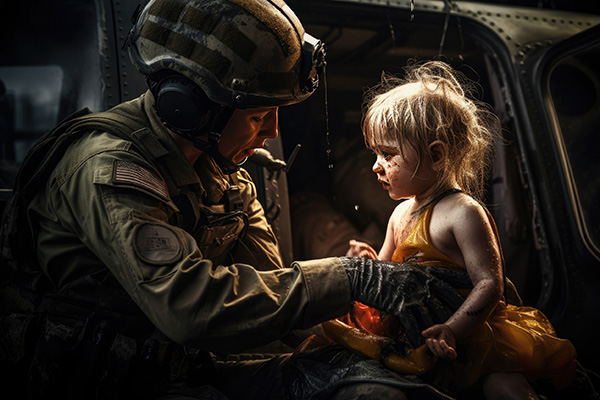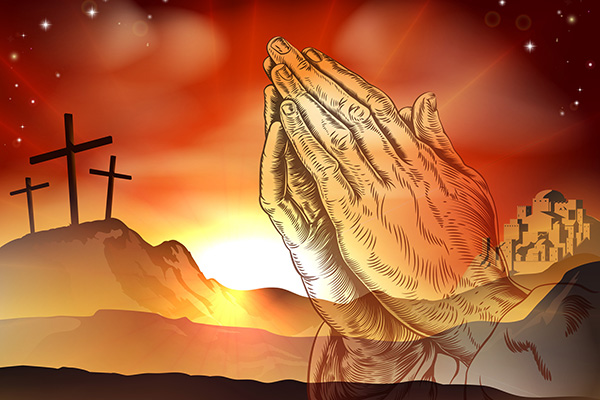generosity
Small Gestures Of Kindness In A Time Of Cruelty
 Many people are feeling anxious or uncertain in recent years with everything that has been happening in the world.
Many people are feeling anxious or uncertain in recent years with everything that has been happening in the world.
Some are fearful and others stressed or unsure how to act appropriately in these restless times. Some even act out in destructive or dramatic ways, taking their frustration out on others.
It is common knowledge that the digital age and social media has spawned a generation of computer warriors and online bullies who express their insecurities and fears, in often extremely mean and cruel ways, from the comfort of their living rooms and basements.
This savage lack of empathy and decorum has seemingly now spilt over into our streets and neighborhoods too.
It is easier for many to be critical and judgmental, to complain and argue, instead of facing facts, dealing with the truth and seeking lasting solutions.
Often not knowing the entire story, many people choose to see only see one side of things, while telling others off for disagreeing with their limited point of view. The computer has unfortunately given some people a platform to spread strife and hatred, instead of love, hope and kindness.
I pray that more people will strive to seek the truth and learn to look for the good and kind in others. Showing tolerance, patience and kindness is always the better, more open approach. And always remember that if someone attacks you directly, then it often means they are somehow struggling or hurting. It usually serves no real purpose to attack them back. Continue reading
Love Is Not Just A Battery, It’s Also A Boomerang!
 Love is like a battery. Love is also like a boomerang.
Love is like a battery. Love is also like a boomerang.
When your energy is low, you may feel depleted and think you don’t have any more love to give. The opposite is also true. Complimenting a stranger or showing love to an animal or person re-energizes your battery.
Love is infinite, not finite. The love and joy you give to others comes back to you.
In fact, I often tell my yoga students and psychic clients who are struggling with depression or sadness to compliment at least ten people each day.
It can be something as simple as saying, “I love that shirt!” or “Your writing is so neat!” The smile on that person’s face raises your vibration, healing you as well as them. Most people are struggling with some kind of challenge, and that one compliment can change their day.
Studies have shown that smiling releases hormones that make you happy, while frowning releases hormones that make you sad. Laughing and crying intensifies these hormones. So, smiling at someone or laughing can actually raise your joy level and vibration.
We live in a hate and frustration driven world lately where people are increasingly divided and constantly judging and attacking each other. I belong to several social media groups where people constantly being unkind and intolerant to others. Continue reading
Embracing The Spirit Of Thanksgiving
 The spirit of thanksgiving invites us today to pause, reflect, and embrace the blessings in our lives, both the visible and the invisible. It calls us to appreciate not only life’s big moments, but also its simple, everyday miracles.
The spirit of thanksgiving invites us today to pause, reflect, and embrace the blessings in our lives, both the visible and the invisible. It calls us to appreciate not only life’s big moments, but also its simple, everyday miracles.
Gratitude is much more than a fleeting emotion or a polite “thank you.” It is a transformative energy, a wondrous frequency that opens pathways to abundance, prosperity, well-being, and fulfillment.
Thanksgiving offers us the perfect opportunity to align with this sacred vibration, blessing our daily lives and deepening our spiritual journey.
In today’s world, even the smallest gestures, a smile, a kind word, or the warmth of a loved one’s embrace can lift our spirits and shift our perspective. Shifting our focus to appreciate life’s simplest gifts enriches us spiritually and helps us face life’s challenges with grace and resilience.
It is natural to celebrate life’s great achievements and monumental blessings, yet the most profound moments are often found in the ordinary: a breathtaking sunrise, a shared laugh, or the quiet comfort of companionship.
How often do we stop to truly savor these moments? Thanksgiving reminds us to appreciate the beauty, joy, and abundance that surround us every day.
When we live with gratitude, we connect more deeply with Spirit and the divine flow of the universe. Gratitude becomes a bridge to positivity, aligning us with higher frequencies that revitalize our energy and attract harmonious connections. A grateful heart radiates light, transforming our aura into an inviting beacon for blessings and manifestations.
The Empath’s Sacred Gift Of Compassion
 Being an empath is more than just having a high sensitivity to the suffering of others. It is also the sacred gift of compassion. Empaths do not only perceive other people’s pain, but we also want to soothe, heal, and uplift them. These twin gifts of discernment and compassionate action are inseparable.
Being an empath is more than just having a high sensitivity to the suffering of others. It is also the sacred gift of compassion. Empaths do not only perceive other people’s pain, but we also want to soothe, heal, and uplift them. These twin gifts of discernment and compassionate action are inseparable.
I have yet to meet an empath who doesn’t feel the calling to alleviate suffering in some way. In a world that so often feels cruel and chaotic, our tender hearts are now needed more than ever.
Compassion, both inward and outward, is a powerful force. It can transform relationships, heal roots of insecurity, and reshape the texture of our inner lives.
In leadership settings, compassionate responses consistently foster trust, deep connection, and lasting loyalty. Harsh reactions, on the other hand, often erect walls and breed resistance.
When someone feels seen, supported, and deeply cared for, their loyalty and dedication follow naturally. This principle applies not only in professional spheres but in every relationship we nurture.
I’ve come to see self-compassion as just as vital as the compassion we extend to others.
Empaths especially can be our own harshest critics. We measure ourselves against external standards and comparisons, often coming up short in our inner dialogue. But offering ourselves a warm, non-judgmental embrace opens new doors: to deeper confidence, heightened clarity, and a grounded sense of worth that doesn’t depend on outperforming someone else.
The Soul Legacy Of A Life Well-Lived
 It is natural for spiritually aware people to reflect on the lives we live and the impact we have on the world. We often ask ourselves, are we making a difference? Is our contribution meaningful? How well are we serving our family, community, nation, environment, spirit, the divine?
It is natural for spiritually aware people to reflect on the lives we live and the impact we have on the world. We often ask ourselves, are we making a difference? Is our contribution meaningful? How well are we serving our family, community, nation, environment, spirit, the divine?
Some people’s legacies are marked by awards, innovations, or public achievements. Some live their lives as great inventors, artists, scientists, philosophers, activists, spiritual leaders, leaving a measurable trail of impact to make the world a better place.
The names of those with such remarkable legacies are etched in history books, and their contributions change the course of societies and industries. We witness their contributions in news headlines and biopics, and learn about them in books and classrooms.
But these remarkable individuals represent only a small minority of humanity. What about the rest of us?
What about those of us who get up every day, not to chase fame or fortune, but to fulfill the humble, yet noble responsibilities of everyday life — raising children, maintaining a home, showing up for work with integrity, running a small business with courage, caring for neighbors, rescuing animals in need?
For most spiritual seekers, our life’s legacy is not about accolades or recognition. It is simply a reflection of the heart, a matter of daily presence, generosity, kindness and compassion, and the quiet ripples of goodness we send out into the world.
Feeding The ‘Good Wolf’ Changes Everything!
 Since childhood, I have been fascinated by parables, folk tales and fables. I realized at a young age that there is something truly inspiring about a story that not only entertains, but carries a deeper message or spiritual lesson and speaks directly to the heart.
Since childhood, I have been fascinated by parables, folk tales and fables. I realized at a young age that there is something truly inspiring about a story that not only entertains, but carries a deeper message or spiritual lesson and speaks directly to the heart.
This love of meaningful stories hasn’t diminished over time. I still find myself drawn to stories that offer wisdom, healing, and perspective.
A few years ago, I came across a beautiful Cherokee story — one that spoke volumes to me and offers guidance to many of us as we navigate the emotional terrain of modern life.
The story goes that a young Cherokee boy found himself in a dispute with a friend. The boy felt that his friend had treated him unfairly. Hurt, and burning with anger, he stormed off to find his grandfather, a revered elder of their tribe who was known for his wisdom.
Sitting with his wise grandfather, the boy poured out his frustration, sharing the injustice he felt and the fire of anger that burned within him.
The old man listened patiently, his eyes pensve and kind. Then, with a nod, he spoke:
“I too have felt great anger at those who have taken from me what was not theirs or who have treated me unjustly. But anger wears on the soul like fire on dry grass. It consumes you if you are not careful.”
He paused, then continued, “You see, it is as if two wolves are fighting within me. One is full of anger, envy, sorrow, regret, greed, arrogance, self-pity, guilt, resentment, lies, false pride, superiority, and ego. This is the evil wolf. He lashes out, trusts no one, and isolates himself from the world.”
The Touching Tale Of The Praying Hands
 In the fifteenth century, in a tiny village near Nuremberg, Germany, lived a family with 18 children. Yes, eighteen! To put food on the table for this mob, the father and head of the household, a goldsmith by trade, worked nearly 18 hours a day at his trade, as well as any other paying job he could find in the neighborhood.
In the fifteenth century, in a tiny village near Nuremberg, Germany, lived a family with 18 children. Yes, eighteen! To put food on the table for this mob, the father and head of the household, a goldsmith by trade, worked nearly 18 hours a day at his trade, as well as any other paying job he could find in the neighborhood.
Despite their seemingly hopeless situation, Albrecht and Albert, two of the older children, had a dream. They both wanted to pursue their talent for art, but they were well aware that their father would never be financially able to send either of them to an art academy.
After many long discussions at night in their crowded bed, the two boys finally worked out a pact. They would toss a coin. The loser would go down to the nearby mines and use his earnings to support his brother, who would attend the academy.
Then, after four years, when the brother who won the coin toss finished his studies, he in turn would support the mining brother to also attend the academy – either by selling his artwork or, if necessary, by working in the mines.
They tossed a coin one Sunday morning. Albrecht Dürer won the toss and went to Nuremberg to study art. Albert went down into the dangerous mines and spent the next four years financing his brother, whose creative work at the academy was almost immediately a sensation.
Albrecht’s etchings, woodcuts, and oils were far superior to those of most of his fellow students and even his professors, and by the time he graduated he was beginning to earn substantial fees for his commissioned works.